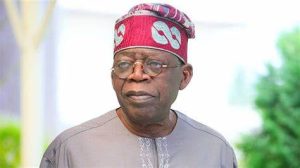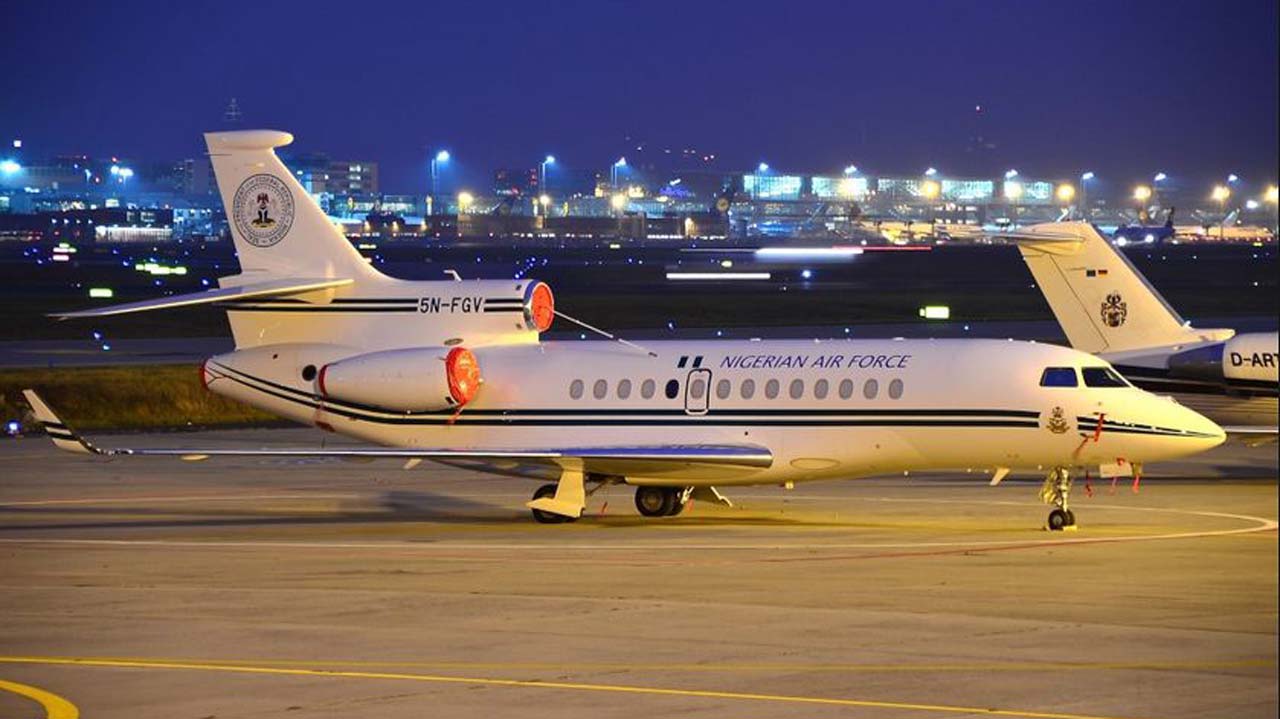
Last week key stakeholders in the aviation industry met with the Minister of Aviation and Aerospace Development, Festus Keyamo in Lagos to interact and appraise the industry under President Bola Ahmed Tinubu’s administration and also to review the policy direction of the government in the sector. The meeting brought to the fore, the efforts government is making to reposition the industry.
During President Muhammadu Buhari’s administration, Nigerian domestic airlines allegedly suffered several setbacks, some of them caused by government policies, the fall of the naira and the general economic situation of the time.
In addition to that, the impact of COVID-19 substantially brought the aviation industry to its knees globally and Nigeria’s airline sub-sector was not spared.
When the naira crashed and forex became extremely scarce, it became very difficult for airlines to acquire aircraft, carry out major maintenance of their aircraft overseas. The situation became more deplorable when the airlines paid billions of naira to the Central Bank of Nigeria (CBN), with the hope to secure foreign exchange that never came. Their naira was trapped and they never secured the dollar exchange. This became more hopeless when it dawned on the operators that despite the huge investment in their businesses, they could be forced to close shop.
At that time, over $800 million of foreign airlines revenue was trapped in Nigeria, which catapulted airfares for international travel and left frustration and despair in their wake. The International Air Transport Association (IATA) warned Nigeria severally that some airlines could withdraw their operation to Nigeria. At the early morning of this economic morass in 2016, Iberia and United Airlines left Nigeria, citing difficult circumstances (the later returned and has been operating in Nigeria since then).
During the period also, it became obvious that lessors and international financiers have blacklisted Nigeria due to obnoxious activities of some airlines who reneged on leasing agreement with some lessors. So, Nigerian carriers were no more exposed to dry lease but to the costly wet lease with stringent operational conditions that practically made it extremely difficult to make profit from such ventures.
Also, scarcity of aviation fuel and its undulating high prices made it frustrating operating schedule flight service in Nigeria. These painted a grim and despondent outlook on the aviation industry and made flight operations precarious and air travel a costly experience at that time.
Dawn of New Era
The minister at the meeting, recalled the status of the aviation industry when Tinubu’s administration took over government and some of the things that have been done to revamp the industry, including the introduction of policies to put the sector in the path of progress.
Keyamo also recalled when he directed that airlines on international flight service should relocate to the newly built terminal at the Murtala Muhammed Airport, Lagos. At that time fire had gutted the baggage movement area of the old terminal and made passenger processing and flight operations difficult.
“First of all, let’s go to the beginning, from day one, when we came to office, I think it was the first one week. If you remember, that was when we said, move to the new terminal. Remember when we came to the new terminal, there were a lot of questions. They told me the new terminal could not be used. That was the word they used. They said it could not be used. There were a lot of deficiencies, a lot of professional problems, and they could not move. The airlines also, international airlines, they all said no, they would not operate from there. The counters also, there was a problem with the checking counters and all that. Like a proper private sector person, what happened, I blocked my ears to all those complaints. I didn’t listen to the complaints and the excuses.
“I said, move, whether you like it or not. Move. And in fact, they moved, and we are enjoying it today, despite all their excuses,” Keyamo recalled.
Keyamo also remembered that one significant accomplishment of the Tinubu administration was when the CBN collaborated with the Ministry of Aviation to offset the foreign airlines trapped funds, amounting to over $800 million.
“The money was there, the naira component was there, but we were not liquid enough. We didn’t have the liquidity to raise the foreign exchange to pay the foreign airlines from the sale of tickets. The President, because of his twin policies of floating the naira and removing subsidy, they worked like magic. And so, liquidity began to rise. And if you understand what has happened now in terms of our foreign exchange obligations, not only in the aviation industry, in many of the sectors, Nigeria began to meet its obligations, foreign exchange obligations. So, within the first six months, we are happy to report that we cleared all our obligations to foreign airlines.

“And if you go to the website of IATA, there was a commendation issued by IATA. Not one, not two, but series of commendations. And IATA was pleasantly surprised that Nigeria could rise up to the occasion and clear its debts,” he noted.
Local Airlines Forex Challenge
As stated earlier, it was not only the foreign airlines that had issues with repatriating their revenues in foreign currency; Nigerian airlines faced similar challenge. They could not source forex to acquire aircraft, buy spares and maintain their aircraft. However, Keyamo said that the matter has been improved upon now because of open buyer and open seller policy, but compared to the value of the naira, dollar dominated expenses is still a challenge in any business that earns revenue in naira and does most expenses in dollars, as it is the situation with the airlines.
“One challenge we still have in this regard, before, but I think the policies have made it easier now, is that while we are taking care of the foreign airlines, we still had the problem of the local airlines. We also had the challenge of making sure they also have access to forex, because I understood their problems when I came, that they could not easily access forex to get most of their parts in, not only that, to meet up their obligations on their ACMIs (aircraft wet leasing, Aircraft Maintenance and Insurance) or some other arrangements they have to bring in their aircraft, but because of the willing seller, willing buyer policy of these governments, access to forex is no longer a problem to even the local airlines.
“They can access forex because you don’t have to depend on CBN alone. Willing seller, willing buyer, anywhere you get your forex, raise your forex. So, it is a credit to the policy of these governments, to the financial wizardry of Mr. President, that these things have been eased in terms of our foreign exchange obligations,” Keyamo said.
He also spoke about his actions and policies which helped to tame the high cost of airfares on international routes, especially on the busiest and most lucrative Lagos-London route.
“With the doggedness of one of our greatest local airlines with the largest fleet, Air Peace, their doggedness, and with some help from us, we opened up the Lagos-London route that had since been suspended, and Nigerians were groaning under the monopoly of some foreign airlines on that route. But people have been giving credit to us. We just did our job as public officers. We must support our local airlines. And so, with the doggedness of Air Peace and its chairman, that route has now come back again to one of our local airlines. And that brings me, of course, to our five-point agenda,” he said.

Improving Safety, Supporting Local Carriers
The minister spoke about the improvement made at the Nigeria Civil Aviation Authority (NCAA), noting that the agency is in complete control of safety regulations but with oversight by the ministry, just as the National Assembly oversights the ministry.
Keyamo said Tinubu’s administration made a 10-point policy that it must support domestic airlines and mobilized policies and resources to do so.
“And it’s very simple, and we are very unapologetic about this. Why do I say so? In the whole of Africa, I mean check all the major airlines are either owned by government or subsidized by government. Rwand Air, South African Airways, Egypt Air, Air Maroc, name them. It is only in Nigeria that you have strong private sector participation, only in Nigeria, in the whole of Africa. 23 vibrant local airlines, incredible. And you know it is not a tea party to run an airline, governments must be involved. So, in Nigeria we have 23 different governments running airlines,” he observed.
Keyamo also noted that when a country has strong private sector participation, literally all the routes domestically are set by local airlines and some international routes.
“If you are the Minister of Aviation and you are fighting them (domestic airlines), you are not supporting them, what are you ministering over? Tell me, what are you ministering over? Because that is your sector, those are the players in your sector,” he pointed out.
Validation
Speaking on behalf of Airline Operators of Nigeria (AON), the Vice Chairman of the association and the Chairman and CEO of Air Peace, Dr. Allen Onyema, commended the Minister of Aviation, the Director General of NCAA, Captain Chris Najomo, saying that Tinubu’s administration brought a lot of positive changes in the industry.
“We in AON have never had it so good. Since the coming of this administration, I am sure everyone knows me very well; that I am not afraid of anybody irrespective of whatever is thrown at me. So, when I praise, I praise out of conviction, and when I criticize, I criticize out of conviction. And I have to say it sincerely and honestly, that Festus Keyamo is a huge success and a blessing to the nation. You may not know what we have been going through until this administration came.
“The truth is that we went through a lot, except the airlines do not want to tell themselves the truth. All those things have been reversed 360 degrees, positively. We thank the minister for this. You may not know that the Nigerian airline industry was facing deliberate extinction until the regime of President Ahmed Bola Tinubu came on board. And thankfully, the kind of person he appointed as the Minister and the kind of good patriotic people we have in Senate and the House of Representatives, especially the Committees that oversight this industry,” he stated.
Many of the stakeholders who attended the event also commended the minister and the federal government for the positive turnaround that has happened in the aviation industry and expressed hope that the sector would continue to get better and better.
THISDAY






